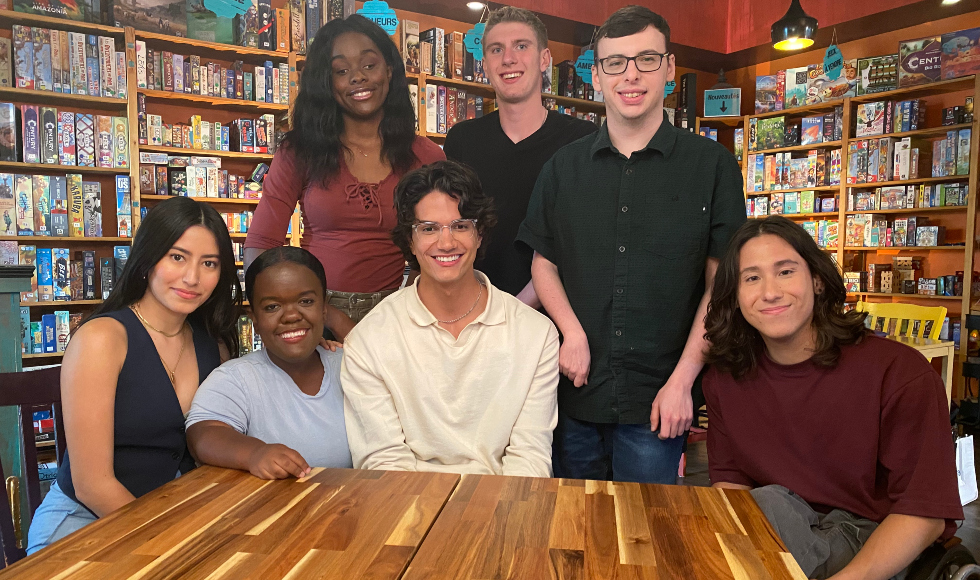You don’t need 20/20 vision to be a visionary

The cast of Got Game, created and hosted by Communication Studies and Media Arts student Joshua Ang. Front row, left to right: Sofia Forero, Lil Gabi D, Joshua Ang, Tai Young. Back row, left to right: Bianca Borgella, Austin Dutt, Patrick Curtis. (Photo courtesy of Joshua Ang))
It took a few months of polite persistence for Joshua Ang to land his apprenticeship with Accessible Media Inc. (AMI), but eventually, calling every two weeks paid off: He got a summer position with the company.
His job? Develop content that could be used for the network, which offers original programming aimed at Canadians with disabilities through a TV network (AMI-tv), a free streaming service (AMI+), YouTube and social media.
If his pitch was good enough, the content would get turned into a show.
Well, the pitch was good.
And this week, two years after that summer apprenticeship, Ang’s show, Got Game, premiered on AMI-tv and AMI+.
The show is aimed specifically at young people with disabilities, and features six people, all around Ang’s age of 21, sharing their stories while playing card games.
“The concept of disability isn’t often thought of in connection to young people, and the network was missing content aimed at younger audiences, especially Gen Z,” explains Ang, who hosts the show.
“We wanted to clear up misconceptions about disabilities, creating representation on screen for people who are young and feeling alone.”
For Ang, who’s now working on his undergraduate thesis in Communication Studies and Media Arts in the Faculty of Humanities, this is a project with a lot of personal connections.
Diagnosed at 14 with Stargardt disease, a rare genetic disease that causes a slow loss of central vision, Ang says he felt alienated because of his low vision.
“I had no family or friends with a physical disability, and I didn’t see myself represented onscreen,” he says.
“I wanted to create a series that allowed people to share their stories their own way and change young people’s perspectives within the disability community.”
“People don’t always realize what they can accomplish or know what their options are, but we want to introduce them to people who are living amazing lives and doing amazing things.”
Working in a visual industry with low vision meant he developed good communication skills and worked with partners who knew their way around the tech aspect of production.
“You need a good imagination and the ability to articulate what you feel and what you want,” says Ang. “You don’t need vision to be visionary.”
The series isn’t just about disability: It deals with the familiar trials and tribulations teens and young adults face as they grow up.
Got Game tackles topics like work, relationships, identity, interests and gender and also offers perspectives on issues like dealing with being treated differently by strangers, trying to gain independence while living with a disability, and navigating changing relationships with parents.
“There’s a cool balance between topics that are important to our disability community, but also common to young people everywhere,” Ang explains.
“We’re emphasizing the idea that disability plays an important part of my life, but it’s not a definition of who I am.”
Got Game debuted on AMI-tv (available in basic cable packages) and AMI+ on Aug. 14.

